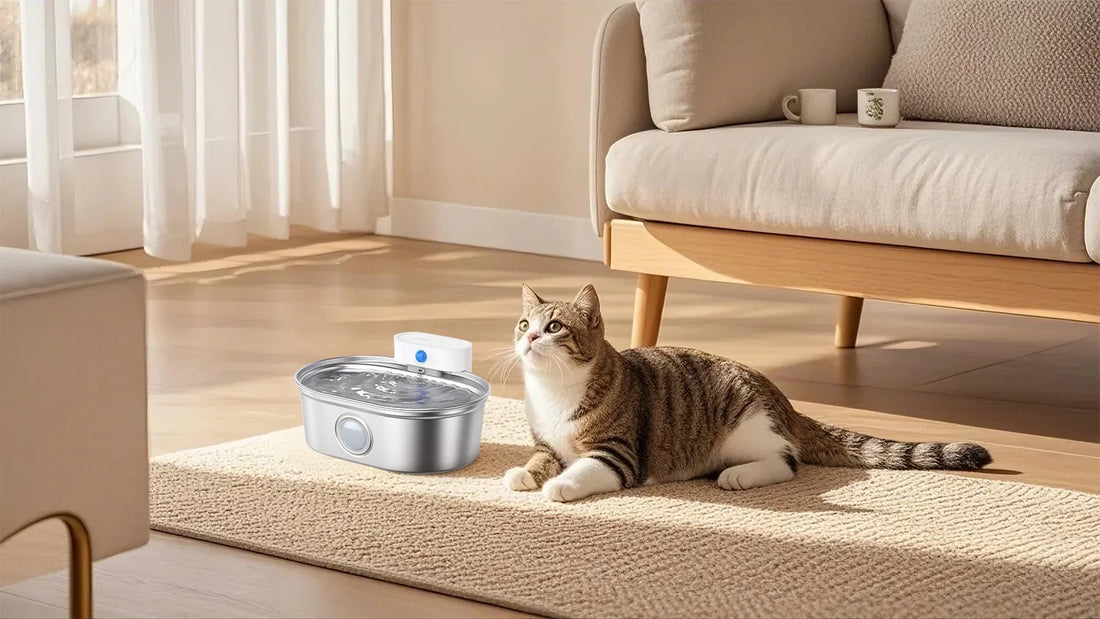Water is a fundamental element of life, and for your feline friend, it’s no different. Cats, like all living creatures, require adequate hydration to maintain their health and well-being. But how often should your cat drink water? This question is more complex than it seems, as it depends on various factors such as age, diet, activity level, and overall health. In this article, we’ll delve into the intricacies of feline hydration, helping you ensure your cat stays properly hydrated.
The Importance of Hydration for Cats
Hydration plays a crucial role in maintaining your cat’s bodily functions. Water aids in digestion, circulation, temperature regulation, and waste elimination. Without sufficient water intake, your cat can suffer from dehydration, which can lead to serious health issues such as kidney problems, urinary tract infections, and even organ failure.
How Much Water Does a Cat Need?
On average, a cat should consume about 3.5 to 4.5 ounces of water per 5 pounds of body weight daily. This means a 10-pound cat should drink approximately 7 to 9 ounces of water each day. However, this amount can vary based on several factors.
Factors Influencing Water Intake
- Diet: Cats on a wet food diet may consume less water since wet food contains a high moisture content. Conversely, cats on a dry food diet may need to drink more water to compensate for the lack of moisture in their food.
- Age: Kittens and senior cats may have different hydration needs. Kittens are more active and may require more water, while older cats may have health issues that affect their water intake.
- Activity Level: Active cats may need more water to stay hydrated, especially if they spend time outdoors in warm weather.
- Health Conditions: Certain medical conditions, such as kidney disease or diabetes, can increase a cat’s need for water.
Signs Your Cat May Be Dehydrated
It’s essential to recognize the signs of dehydration in your cat so you can take action promptly. Some common symptoms include:
- Lethargy or decreased activity
- Dry or sticky gums
- Loss of appetite
- Sunken eyes
- Decreased skin elasticity (when you gently pull up the skin on the back of your cat’s neck, it should quickly return to its normal position)
If you notice any of these signs, it’s crucial to consult your veterinarian immediately.
Encouraging Your Cat to Drink More Water
Some cats are naturally reluctant to drink water, which can be a cause for concern. Here are some tips to encourage your cat to stay hydrated:
Provide Fresh Water Daily
Cats are more likely to drink water if it’s fresh and clean. Make sure to change your cat’s water at least once a day and clean the water bowl regularly to prevent the buildup of bacteria.
Use Multiple Water Bowls
Place several water bowls around your home to make it easier for your cat to access water. Some cats prefer drinking from different locations, so having multiple options can encourage them to drink more.
Consider a Cat Water Fountain
Many cats are attracted to running water. A cat water fountain can provide a continuous flow of fresh water, which may entice your cat to drink more.
Add Water to Their Food
If your cat is on a dry food diet, consider adding a small amount of water to their food to increase their moisture intake. Alternatively, you can mix wet food with dry food to provide additional hydration.
Monitor Water Intake
Keep an eye on how much water your cat is drinking each day. If you notice a significant decrease in their water intake, it could be a sign of an underlying health issue that requires veterinary attention.
Special Considerations for Hydration
Certain situations may require extra attention to your cat’s hydration needs. For example, during hot weather, your cat may need more water to stay cool. Similarly, if your cat is recovering from an illness or surgery, they may require additional fluids to aid in their recovery.
When to Consult a Veterinarian
If you’re ever in doubt about your cat’s hydration status, it’s always best to consult your veterinarian. They can provide guidance tailored to your cat’s specific needs and help you address any concerns related to their water intake.
Ensuring your cat drinks enough water is a vital part of their care. By understanding their hydration needs and taking steps to encourage water consumption, you can help your feline friend lead a healthy and happy life. Remember, a well-hydrated cat is a healthy cat!














